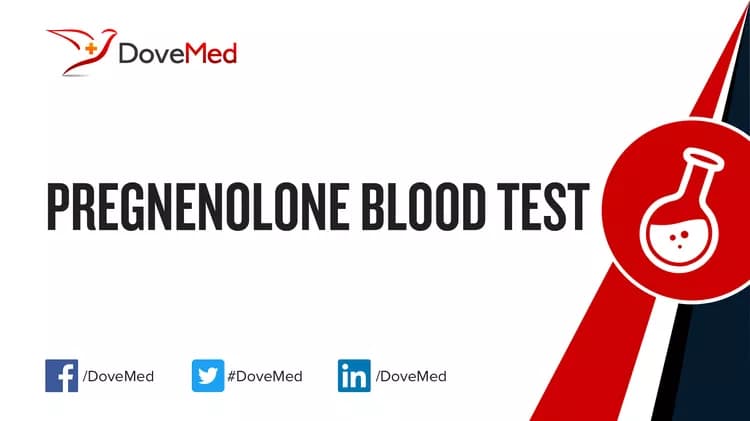What are the other Names for this Test? (Equivalent Terms)
- 3ß-hydroxypregn-5-en-20-one Blood Test
- P5 Blood Test
What is Pregnenolone Blood Test? (Background Information)
- Pregnenolone is a hormone precursor that gives rise to all steroid hormones. Steroid hormones include:
- Progesterone, a female sex hormone essential to the menstrual cycle and pregnancy
- Estrogen, a female sex hormone necessary for the reproductive system and the development of secondary sex characteristics such as body hair
- Testosterone, a male sex hormone responsible for male sex organ development and sperm maturation
- Cortisol, a stress hormone that causes anti-inflammatory effects and release of stored nutrients for immediate use
- Aldosterone, which maintains blood electrolyte levels and blood pressure
- The base upon which all steroid hormones are built is cholesterol. Cholesterol gets converted to pregnenolone in the adrenal glands. The adrenal glands are pyramid-shaped organs situated atop the kidneys
- Pregnenolone converts to various steroid hormones through one or more reactions. This is done by enzymes, which are protein machines that enable reactions to take place at reasonable rates
- Defects with these enzymes lead to deficiencies in the hormones they help make, and a buildup of pregnenolone occurs. Some commonly affected enzymes and their products include:
- 21-hydroxylase: Aldosterone and cortisol in 90% of cases
- 11-beta-hydroxylase: Cortisol in 5-8% of cases
- 3-beta-hydroxysteroid dehydrogenase and 17-alpha-hydroxylase: Progesterone, in some rare cases
- Enzyme defects may arise if the DNA blueprint giving instructions for the enzymes contain mutations. Mutations are often passed down from parents and are present from birth
- The Pregnenolone Blood Test measures the levels of pregnenolone in blood. It is used to identify an enzyme deficiency in the steroid production pathway that can cause a variety of disorders, including congenital adrenal hyperplasia (CAH)
- Pregnenolone levels alone are not enough to identify the enzyme that is deficient. Often, hormone levels need to be identified, as well
What are the Clinical Indications for performing the Pregnenolone Blood Test?
Following are the clinical indications for performing the Pregnenolone Blood Test:
- Abnormal development of infants, including:
- Ambiguous genitalia
- High blood pressure
- Low blood potassium
- Loss of salt
- Abnormal development of teens, including:
- Delayed puberty
- Failure to develop secondary sex characteristics (low voice, body hair)
- No menstrual periods
How is the Specimen Collected for Pregnenolone Blood Test?
Following is the specimen collection process for Pregnenolone Blood Test:
Sample required: Blood
Process of obtaining blood sample in adults:
- A band is wrapped around the arm, 3-4 inches above the collection site (superficial vein that lies within the elbow pit)
- The site is cleaned with 70% alcohol in an outward spiral, away from the zone of needle insertion
- The needle cap is removed and is held in line with the vein, pulling the skin tight
- With a small and quick thrust, the vein is penetrated using the needle
- The required amount of blood sample is collected by pulling the plunger of the syringe out slowly
- The wrap band is removed, gauze is placed on the collection site, and the needle is removed
- The blood is immediately transferred into the blood container, which has the appropriate preservative/clot activator/anti-coagulant
- The syringe and the needle are disposed into the appropriate “sharp container” for safe and hygienic disposal
Preparation required: No special preparation is needed prior to the test.
What is the Significance of the Pregnenolone Blood Test Result?
The significance of the Pregnenolone Blood Test is explained:
- High pregnenolone levels may indicate deficiencies in enzymes of the steroid production pathway. The greater the deficiencies, the higher the pregnenolone levels
- Elevated levels of pregnenolone coupled with high 17-hydroxypregnenolone, DHEA, 17-OHP, and low cortisol and aldosterone levels may indicate 3-beta-hydroxysteroid dehydrogenase deficiency
- Elevated levels of progesterone, pregnenolone, and 11-deoxycorticosterone, alone with low 17-OHP, 17-hydroxypregnenolone, 11-deoxycortisol, DHEA, androstenedione, cortisol, testosterone, estrogen, and aldosterone may indicate 17-alpha-hydroxylase deficiency
The laboratory test results are NOT to be interpreted as results of a "stand-alone" test. The test results have to be interpreted after correlating with suitable clinical findings and additional supplemental tests/information. Your healthcare providers will explain the meaning of your tests results, based on the overall clinical scenario.
Additional and Relevant Useful Information:
- Several enzyme deficiencies can cause congenital adrenal hyperplasia (CAH). The most common of the 21-hydroxylase deficiencies requires testing of 17-OHP and not pregnenolone
- Pregnenolone is also known as the ‘mother hormone’, because many hormones are derived from the pregnenolone molecule
Certain medications that you may be currently taking may influence the outcome of the test. Hence, it is important to inform your healthcare provider of the complete list of medications (including any herbal supplements) you are currently taking. This will help the healthcare provider interpret your test results more accurately and avoid unnecessary chances of a misdiagnosis.
Please visit our Laboratory Procedures Center for more physician-approved health information:
http://www.dovemed.com/common-procedures/procedures-laboratory/
Related Articles
Test Your Knowledge
Asked by users
Related Centers
Related Specialties
Related Physicians
Related Procedures
Related Resources
Join DoveHubs
and connect with fellow professionals


0 Comments
Please log in to post a comment.